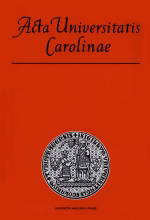Institucionální reforma EU podle Lisabonské smlouvy: složení Evropské komise
Institutional Reform of the EU under the Treaty of Lisbon: Composition of the European Commission
Author(s): Jiři ZemánekSubject(s): Law, Constitution, Jurisprudence
Published by: Univerzita Karlova v Praze, Nakladatelství Karolinum
Keywords: institutional reform of the EU; European Commission; effectiveness and legitimacy; Treaty of Lisbon; Presidency in the Council EU
Summary/Abstract: The Treaty of Lisbon re-designed the make-up of the European Commission: the existing rule “one member state – one commissioner” had to be replaced by a new one based on a reduced number (2/3) and equal rotation since 2014. It was justified by the requirement of a more operative and consistent collegium. The Irish referendum on the Treaty of Lisbon rejected in June 2008 to give a consent with its ratification. One of the reasons disclosed later allegely was the awareness of the Irish people of loosing “their own” commissioner from time to time. However, non-entry into force of the Treaty of Lisbon before the next European Commission starts to operate (1 November 2009) would lead to enforcement of the Protocol on enlargement of the EU, agreed at Nice (2000), which required an immediate reduction of number of the commissioners since 2009. An uneasy task of the Czech Presidency in the Council in the first half of 2009 therefore was to find a solution, supporting the ratification of the Treaty of Lisbon as well as meeting the Irish desiderata. The former background of the European Commission within the institutional framework of the EU is analyzed, first. Then, the paper discusses the options available and makes an assessment of the solution reached already under the French Presidency at the end of 2008. The final outcome from the controversy – preservation of the status quo of the European Commission’s composition, regardless of its unmaintainability forever, does not seem to be a model for next crisis management in the EU. It has to be based rather on rational than on emotional footing.
Journal: Acta Universitatis Carolinae Iuridica
- Issue Year: 56/2010
- Issue No: 3
- Page Range: 75-86
- Page Count: 12
- Language: Czech

